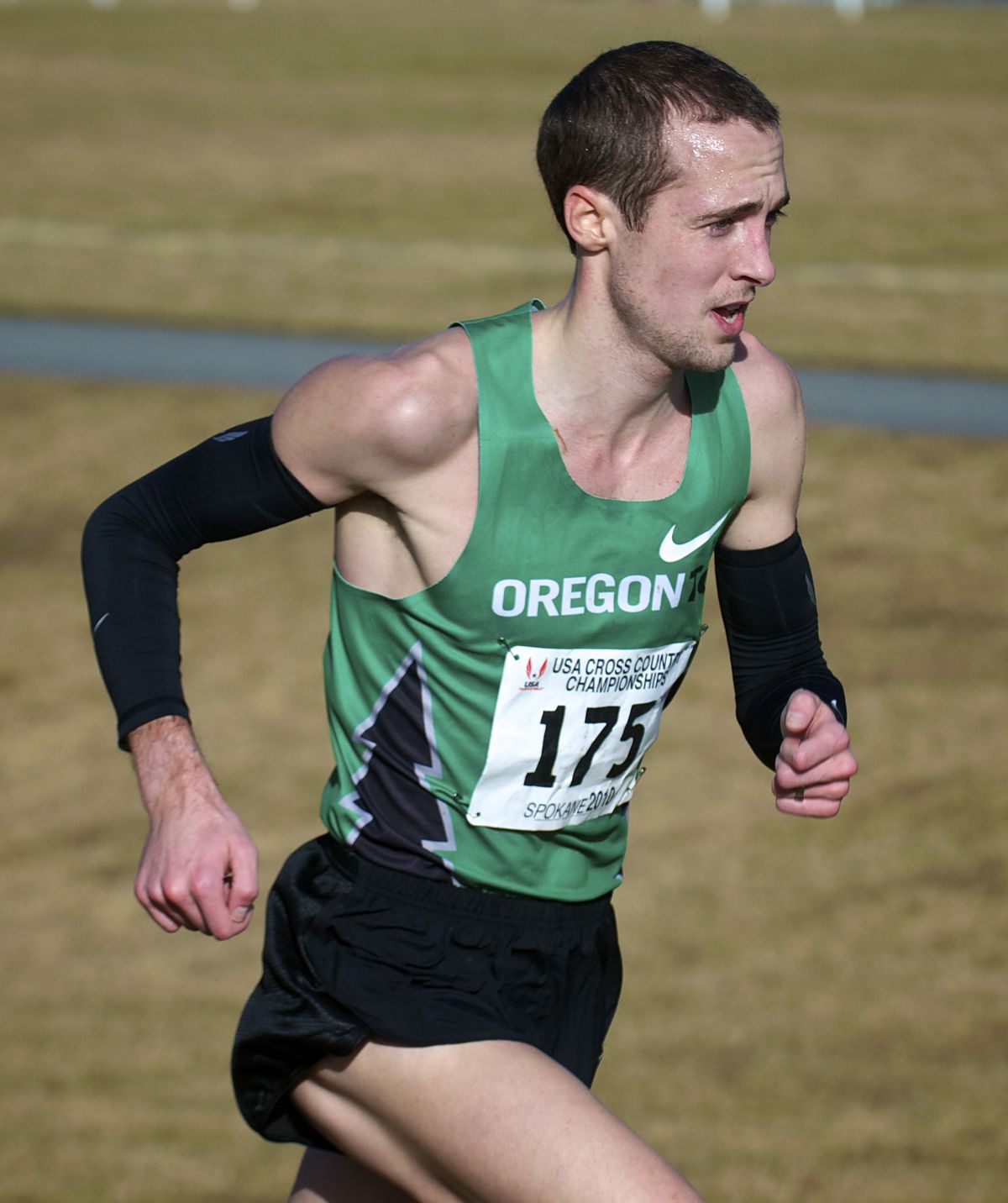Dogged determination puts Ritzenhein up front

Alpha dogs impose their will as a matter of nature, not strategy. And in American distance running, Dathan Ritzenhein is our alpha dog.
So plans were pretty much cast into the gentle breeze Saturday at the USA Cross Country Championships at Plantes Ferry Park. What coach Alberto Salazar had mapped out for Ritzenhein was a move on whatever there was of a lead pack with a kilometer remaining in the 12K race. But not long after he passed the 8K mark with Patrick Smyth and Scott Bauhs, Ritzenhein couldn’t help himself.
He accelerated up a gentle grade and quickly put 30 meters between himself and his pursuers and thought to himself, “Let’s get it over with.”
By the finish line, 18 seconds separated him from Smyth – and Ritzenhein recalled the game plan and admitted, “I might get a little chewing out for this one.”
Hey, it’s not coaching if there are nits left unpicked.
And with Ritz, there isn’t much left except nits.
With six berths to the IAAF World Championships at stake, it had been Team Ritzenhein’s intention to use this spectacularly balmy Spokane day for lab work – the actual winning being a formality.
“I don’t have to just kill people and break them early,” Ritzenhein reasoned. “I’m good enough to run and let it sit awhile, because I’ve got to have that confidence when I’m racing against guys like Bekele and Tadese to sit with them and still be there at the end – that I don’t have to push it all the time.”
That would be Keninisa Bekele of Ethiopia, the three-time Olympic gold medalist and winner of last year’s 10,000-meter world championship in Berlin where Ritzenhein finished a somewhat surprising sixth. And Zersenay Tadese of Eritrea, “the best runner in the world other than Bekele” in Ritzenhein’s estimation, who pulled away from the American to win the world half marathon title two months later.
This is the company Ritzenhein feels compelled to keep from now on.
“After the race in Berlin last year we were going to do some other races,” he said, “but we took a look back and said we have to race these guys on the biggest stages as often as we can for the next coming years, because this is really going to be the prime of my career.
“So we really want to get in and duke it out with them as many times as possible. Sometimes you get in and you’re not as fit as you were before; maybe you’re more fit. And it doesn’t matter. It’s just a matter of getting in and actually racing and doing the best you can against the best guys.”
That approach snagged Ritzenhein the American record at 5,000 meters – 12 minutes, 56.27 seconds – just 11 days after Berlin, again following in Bekele’s wake. It had him watching Meb Keflezighi’s win at the New York City Marathon and wishing he hadn’t pulled the plug on his 2009 season. And it’s what has him gunning for a world cross medal next month in Poland, an event many top American runners skip because of its place on the calendar.
It was, in fact, the approach Salazar took as a runner, so it’s hardly surprising that it’s rubbed off on Ritzenhein since moving to Portland and hooking up with his new coach last June – a move made to rid himself of “a mindset of mediocrity.
“I didn’t have the competitive fire that I used to be known for,” he said. “Some of the training was monotonous and not competitive. I do workouts now that I never could have done before.
“I’m doing now what I thought I should have been doing a long time ago. I could always run 13:16 and 27:35 and I wouldn’t say it was going through the motions, but it wasn’t do or die, either. That’s the kind of mindset I bring to racing now.”
Ritzenhein’s gaze is already locked on the 2012 Olympic marathon – he was a disappointing ninth in Beijing – and will jump into one this fall. But in the meantime, he would still like to take the American 5,000 record lower and thinks he can dip less than 27 minutes in the 10,000, as well. And there’s this grass-and-mud mixer coming up in Poland, and the alpha dog wouldn’t mind some American company doing battle with the world.
“There’s a fear of going after it sometimes,” Ritzenhein said. “In some of Ryan Hall’s marathons when he was running his best, he goes for it. Same with Meb. You have to know your capabilities, but at the same time you have to put yourself in a position to do something special – because otherwise you’re just going to do what you’ve done before.”